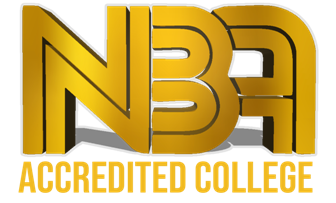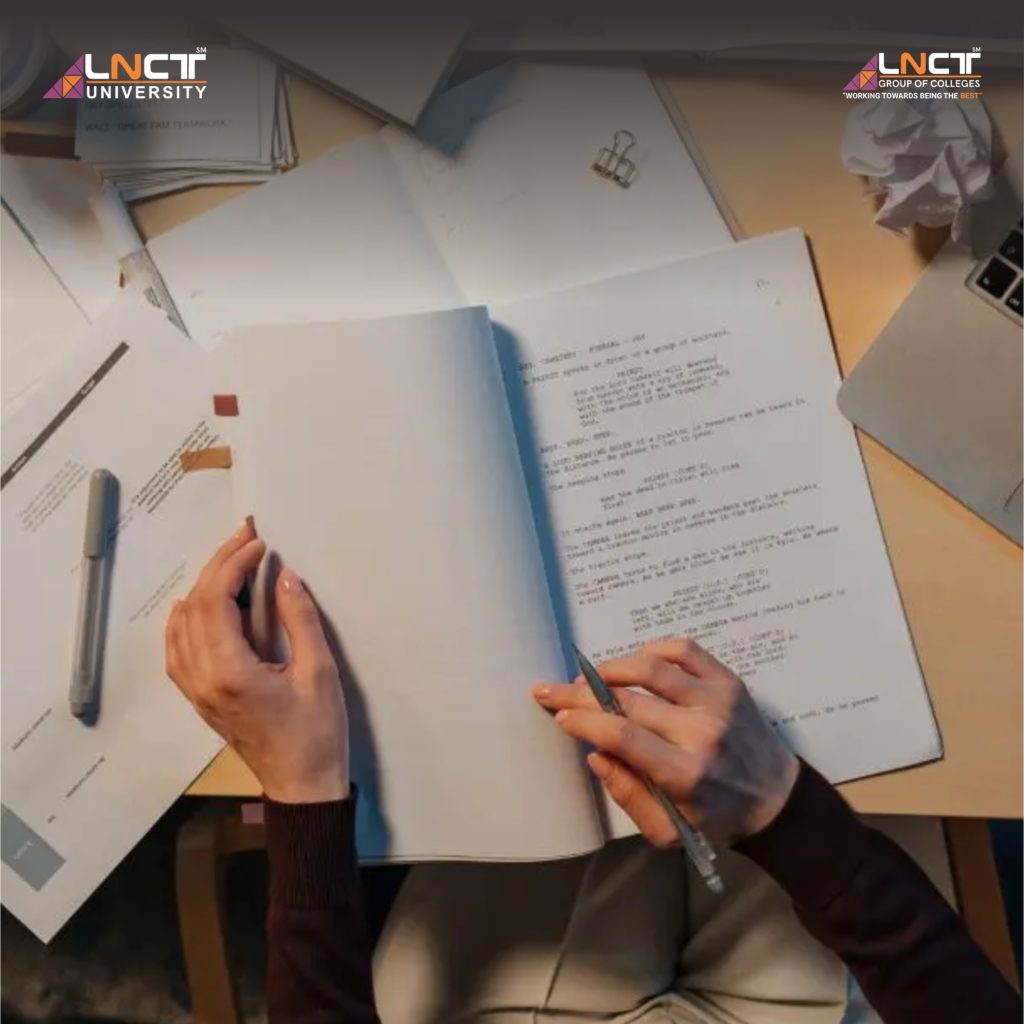Index
-
When to start preparing for entrance exams?
-
How to prepare for entrance exams?
-
Strategies to stay calm and relaxed during the exam
-
What and how to study one day before the exam?
-
What and how to study one day before the exam?
-
Additional resources for preparation of competitive engineering exam
-
Book Recommendations
When to start preparing for entrance exams?
The ideal stage to start deciding and starting your preparation for engineering entrance exams is from the 9th class. Why? Because that is when your higher education begins, and that is when the fundamental concepts are taught to children. Deciding early makes you more serious about your goal, and then you work accordingly. It is pretty simple; more serious means better concepts you will need while studying the 11th and 12th class syllabus. It is like a magic e-masala to your Maggie.
Accurate preparation starts when you reach the 11th class, and your 9th and 10th class concepts are tested. Suppose you opt for coaching classes for entrance tests. In that case, almost every coaching institute conducts scholarship tests before admission, which test your 9th and 10th concepts, so you are saving money by being good at your fundamental concepts.
How to prepare for entrance exams?
1. Brace yourself
Preparing yourself physically and mentally is as important as studying. Keep in touch with activities that make you feel calm or take regular short breaks while studying; this will keep you from a mental breakdown and exhaustion. Put the necessary nutrients in your diet and get some physical exercise regularly.
For example, if you are in a regular school, you can cover physical exercise in sports. However, if you are in a dummy school, you can exercise in the morning or per your timetable.
2. Get acquainted with your syllabus.
Understand your syllabus and mark the exam months. Also, highlight the dates of the entrance exam. It’s important to know what’s on your plate before eating, list the weaker sections, acquire a good grip on those sections, and keep revising your substantial sections.
For example, suppose you have just entered the 11th standard. In that case, you can start your preparation by understanding your syllabus of school as well as coaching, this way, you will know the dates of the examination and will revise and prepare for it beforehand.
3. Prepare a complete timetable.
Preparing a timetable will help you track your time (as crucial as stating that’s what she said in apparent times). Apart from your school and coaching institute timings, plan when and what to study and revise and by what time you need to finish those subjects.
Here are some tips for planning your timetable:
- Please do not keep the same subjects on consecutive days because soon you’ll get bored with them; instead, keep them on alternate days like MWF (Monday, Wednesday, Friday) or TTS (Tuesday, Thursday, Saturday).
- Use your weekends wisely. You should grind and work hard on work days. However, on weekends, you must give yourself some time, like work on your hobbies or do some fun activities that you like but not the entire weekend, plan out how you are going to use your weekend, involve revision, repeat questions that you might have left because of difficulty level, attempt mock tests and then analyze it thoroughly, school assignments or projects if there are any.
- Keep break periods in your schedule; these will keep you from exhaustion and mental fatigue.
- You must follow your timetable with discipline but also be flexible following it. Uncalled circumstances always happen, so be open to that and keep it flexible.
- Set realistic goals, monitor your performance, and plan your schedule accordingly. Setting unrealistic goals will disappoint you because you’ll need more time to finish your task and will not be able to allocate sufficient time for the next task.
- Look out for public, school, and coaching holidays; for this, create your timetable using a calendar and create a to-do list for those holidays.
- You can purchase sticky notes for a to-do list for the following day. You can use it to keep you aware of the upcoming events, tests, and exams in school and coaching and stick it on the wall in front of you where they are easily visible.
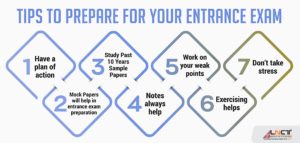
Here are the basics you studied in earlier classes, months or years ago. Revise your basics regularly because it helps you recall the details of the doomsday while giving the exam.
-
Clock o mania
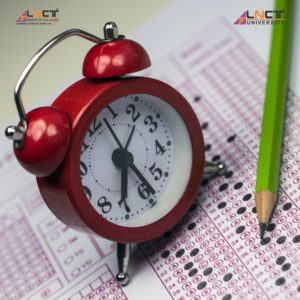
Every time you sit to practice questions, put a clock beside you and start a timer; this will help you analyze the time you put into each question. Afterward, analyze your time to solve a whole practice sheet and try to reduce it. This will come in handy when you are solving questions in actual exams because you need to solve questions as quickly as possible, and that builds some pressure, so keeping the clock aside will make you used to a small amount of pressure. You could see it as a contest in which your competitor is no one but you.
For example, if you are solving a sheet of 20 questions, you can usually solve it. However, if you try using Clock o Mania here, firstly, it will reduce your time to solve these questions because you will not waste any time; second, it will increase your speed and help you monitor the average time you take per question.
2. Cheat book
Prepare a formula book and keep updating it whenever you face an issue with some formula or a question involving a new concept. Your formula book is an unsung warrior used when you need a glance at formulas right before a test or your competitive exam. Oh, and keep revising it because it makes a difference between a student who has revised his formula book several times before a test and the one who uses it once, just before the Entrance exam. Everybody makes one, and they might not tell you because it is a secret ingredient to your success.
3. Mock tests
Mock tests are made to give you a taste of actual entrance exams, timings, patterns, number of questions, format, window size, etc. Everything is kept the same except questions; giving mock tests regularly will help you get acquainted with the pattern, enabling you to develop a strategy to attempt the exam of your own.
4. PYQs
Previous year questions are a must-solve in your preparation journey; they will drop a cue about the type of questions asked and the level of difficulty of those questions.
5. Get the right study material
Go through several books online or at stationery, understand the content, and then choose the best book for you. You can also purchase a book of past year papers.
Tips for exam days
Exam day, or doomsday, is one of the most critical days for competitive exams; what you do before the exam is more important than what you do in your exam sheet. Following are the tips for your exam day:
- Most important is your sleep; get good sleep to energize your brain and your body’s battery at 100%.
- Next is what you eat; get a healthy diet and eat bland food; it will keep you energized throughout the exam, enabling you to focus entirely on your exam and not stomach issues. Please avoid heavy food too.
- Study nothing on your exam day, as it will deplete your energy and exhaust your brain. Studying on exam day can also create panic; you might try to solve problems, and if you cannot solve them, it will create havoc in your mind, so it is better not to study anything on exam day.
- Travel light; do not carry anything heavy in your bag on exam day as it can deplete your body’s energy. Just carry basic requirements like a water bottle, admit card, pen, directions for your exam center, and id proof. Nothing else.
- Stay calm and relaxed, and avoid anxiety and tension about how you will perform in the exam, it will only mess with your head, and eventually, you will spoil your exam. Take a few deep breaths and stay calm if you feel anxious.
- Right before your exam, prepare your mindset by recalling your attempt strategy. This will help you not to worry about how to attempt it but how to crack questions in minimum time.
- Use your exam time effectively, and avoid getting stuck on any question; if you cannot solve it, go ahead and solve another because you might miss out on an easy question.
- Dress well, wear comfortable clothes, nothing fancy.
- Try to reach the exam center early to complete the verification process and get seated on time. This will also give you time to get comfortable with your seating arrangement.
- Stay hydrated while giving exams; keep a water bottle beside you as it will help you to stay alert and focused.
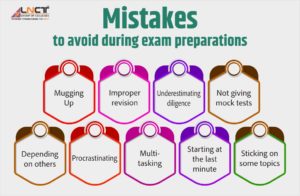
Strategies to stay calm and relaxed during the entrance exam
- Avoid distractions such as noise, chairs, and faculty movements. These factors are unavoidable, and there are very high chances of happening, so better to ignore this and stay focused.
- Try taking short-duration breaks while giving exams or while switching sections. It will allow you to relax your brain and re-energize for further questions.
- Right before the exam, you can close your eyes to calm down and even meditate; it will help you relax and focus.
- Use time management techniques to manage time while attempting the exam. Prioritize the questions you are confident about, and divide them based on their difficulty level and time remaining in your hand.
- Stay hydrated, and use your gaps to drink water; this will keep you from getting panicked or anxious and will keep you calm and relaxed.
- Remember, this is just an exam and will not define what lies ahead. An exam will not determine your worth. Remember this while attempting your exam, and do not worry about the outcome or result.
What and how to study one day before the exam?
It is essential to stay calm and relaxed today, do not pick any tricky questions to solve, and it is even better if you don’t go for solving questions. The best thing you can do is a revision of concepts. Revise formulas, concepts you are confident about, and concepts you could be better at.
Although preparation for competitive entrance exams should stop 24 hours before the exam because that way, you are not putting any load on your brain, so your brain will also stay energized to help you focus 110% on your exam and what you study on the day before the exam will not make any difference because it is a competitive exam, not school exam, how much practice you did before in your journey will matter the most,
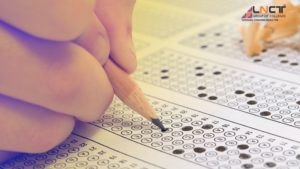
Additional resources for preparation of competitive engineering Entrance exams
Best mock tests
- Unacademy(https://unacademy.com/content/jee/free-mock-tests-for-jee-mains/)
- Self-study (https://www.selfstudys.com/mcq/jee/online/mock-test)
- Vedantu(https://www.vedantu.com/iit-jee/jee-main-online-mock-test-series)
- Akash byjus (https://www.aakash.ac.in/jee-main-mock-test)
Best study material
- Byjus(https://byjus.com/jee/iit-jee-study-material/)
- Embibe(https://www.embibe.com/exams/jee-main-study-material/)
- Unacademy(https://unacademy.com/content/jee/study-material/)
- Free study material by Jeemain. guru(https://jeemain.guru/)
Best online courses
- Akash byjus(https://byjus.com/jee/)
- Unacademy(https://unacademy.com/goal/jee-main-and-advanced-preparation/TMUVD)
- IITjeeonline(https://www.iitjeeonline.com/)
Above listed are some of the best online courses, study material, and mock tests with direct links for your reference.
Book Recommendations
| Section | Book Title | Author |
| Mathematics | Higher Algebra | Hall and Knight |
| Problems in Calculus of One Variable | I.A. Maron | |
| Differential Calculus | Amit M Agarwal | |
| Integral Calculus | Amit M Agarwal | |
| Plane Trigonometry | S.L. Loney | |
| Co-ordinate Geometry | S.L. Loney | |
| Complete Mathematics for JEE Main 2022 | McGraw Hill | |
| Physics | Concepts of Physics (Vol. I and II) | H.C. Verma |
| Problems in General Physics | I.E. Irodov | |
| Understanding Physics for JEE Main and Advanced
Waves and Thermodynamics |
D.C. Pandey | |
| Understanding Physics for JEE Main and Advanced
Mechanics (Part 1 and 2) |
D.C. Pandey | |
| Problems in Physics | S.S. Krotov | |
| Chemistry | Physical Chemistry by P. Bahadur | P. Bahadur |
| Organic Chemistry by Morrison and Boyd | Morrison and Boyd | |
| Inorganic Chemistry by J.D. Lee | J.D. Lee | |
| Complete Chemistry for JEE Main 2022 | McGraw Hill | |
| General | The Pearson Guide to Complete Mathematics for JEE | Dr S.K. Goyal |
| Wiley’s Halliday / Resnick / Walker Physics for JEE
Main |
Halliday, Resnick and Walker | |
| Wiley’s Solomons, Fryhle, Snyder Organic Chemistry for JEE | T.W. Graham Solomons, Craig B. Fryhle and Scott A. Snyder |
Summarizing all the valuable points mentioned above, it is always better to start for engineering entrance exams as early as possible, which is when you enter the class 11th. Use techniques such as clock o mania, cheat book, etc., understand the concepts, solve previous year’s questions, give mock tests, and keep on practicing the questions. Do not forget to carry the required documents with you on your entrance exam day, do not panic, be calm, and you’ll ace it.
Be determined towards your goal, stay motivated, do not get exhausted, and keep yourself away from mental fatigue. Remember, no exam can define your worth. Use your resources carefully and efficiently.
Best of luck! for your Entrance Exam
- Brace yourself https://assets.publishing.service.gov.uk/government/uploads/system/uploads/image_data/file/54473/6.2368_PHE_CP_Health_Matters_-_physical_activity_in_adults_online_960x640__6.png.
- Prepare a complete timetable. https://i.pinimg.com/originals/98/da/b4/98dab41eebafac5741d138a49c3d2564.jpg
- Mock tests https://d2htb95zppc7kr.cloudfront.net/wp-content/uploads/2019/11/Get-ready-for-Mocks.jpg
- PYQs https://qph.fs.quoracdn.net/main-qimg-d5273c26b1d42012f859ea97b31ef5b8
Also, Read – How to Set up a Career in Big Data Engineering | Step-by-step guide

